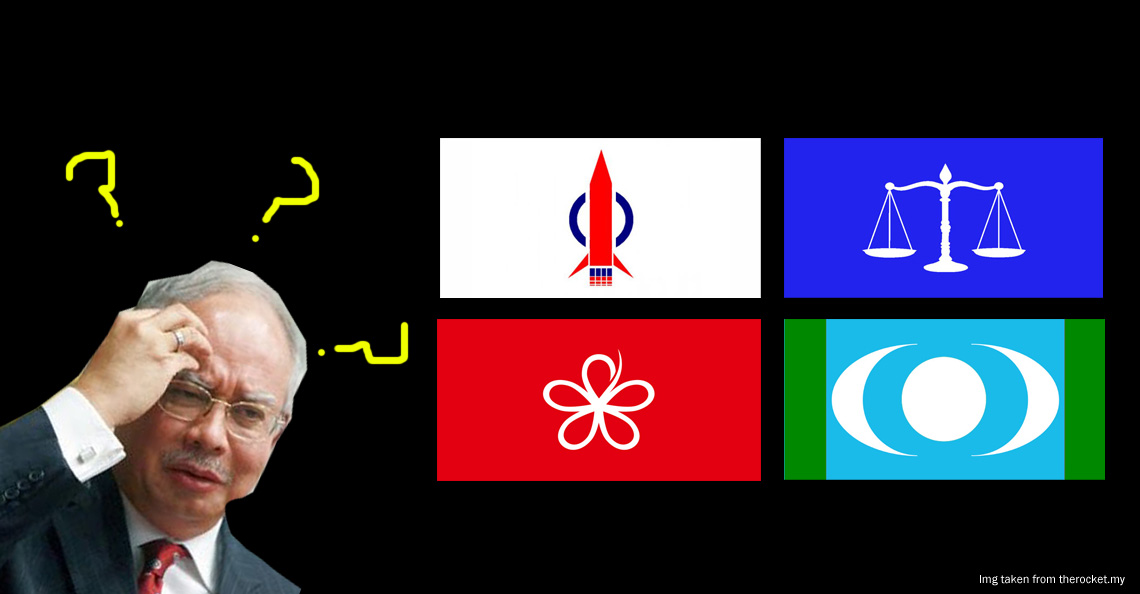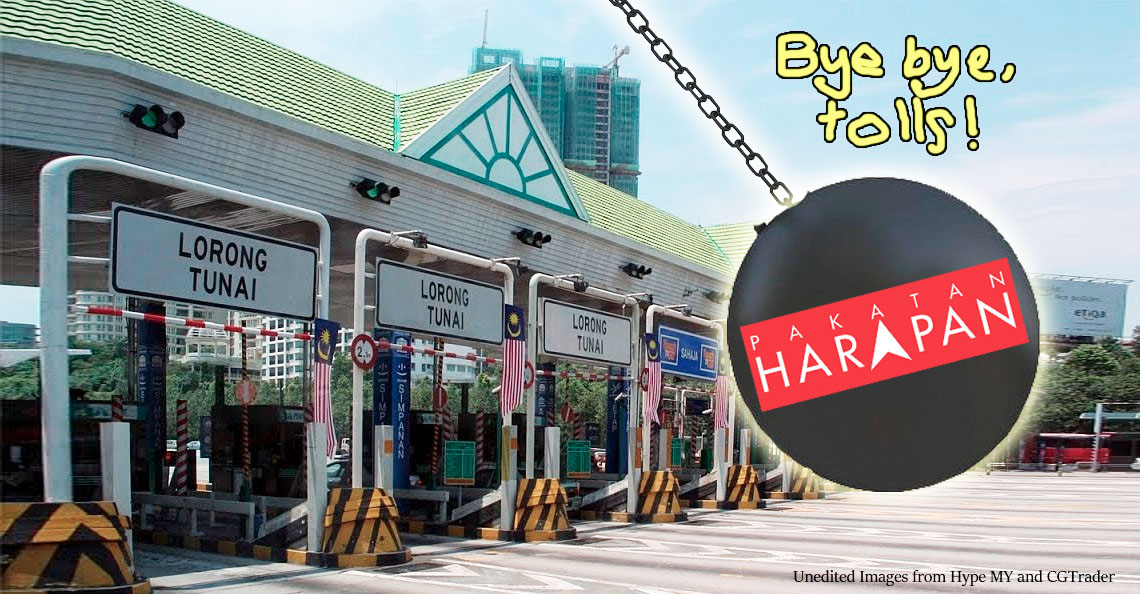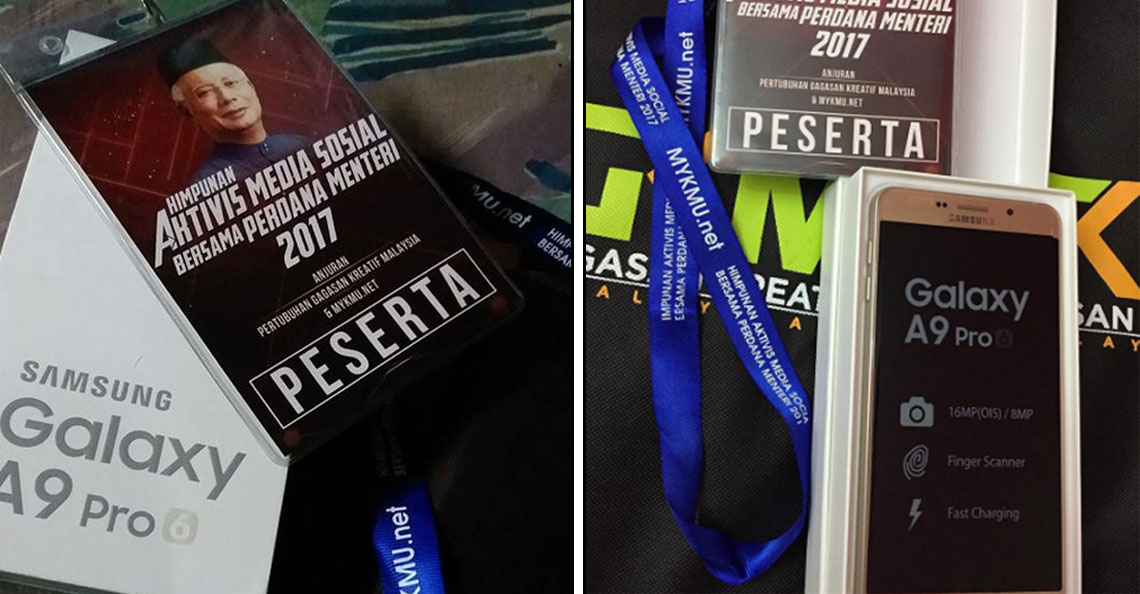5 easily-fixable problems that made GE14 a lot harder for Malaysians

- 747Shares
- Facebook678
- Twitter7
- LinkedIn10
- Email12
- WhatsApp39
Whew. What a week it’s been. Who woulda thought that the elections on May 9th would have given Malaysians the results we saw? Well, going by the pollsters and researchers making their predictions for GE14, almost nobody. Among the reasons nearly EVERYONE predicted a Pakatan loss was the Election Commission (EC)’s redelineation exercise which largely benefited BN and allegations of phantom voters that went ignored by the EC.
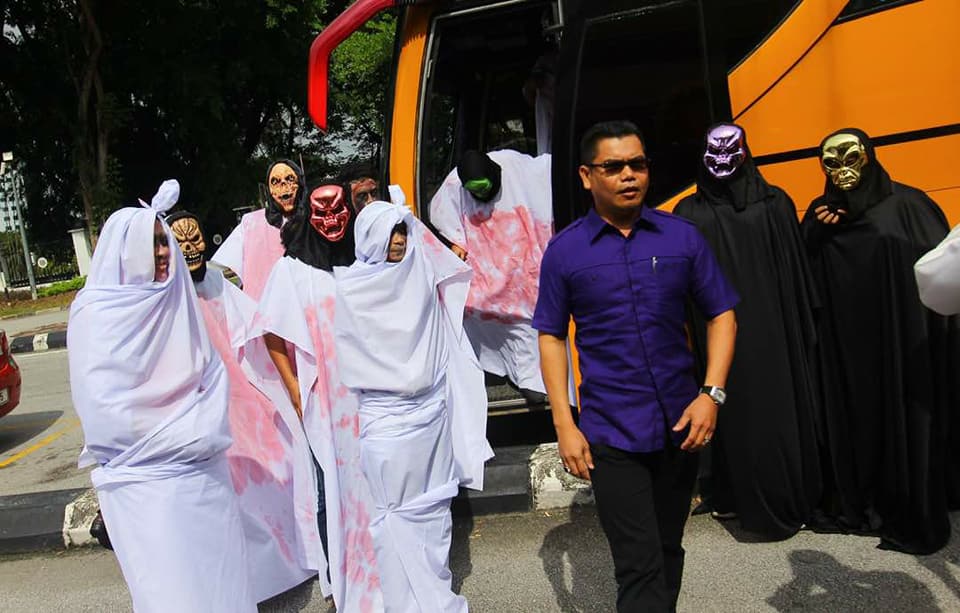
While we’ve mentioned before that our electoral system DOES have its merits, we realised looking back there are still a number of complaints yet to be addressed. So we decided to compile together a list of issues that we saw reported on Malaysia’s electoral process leading up to/on election day itself and spoke to Thomas Fann, chairman of pro-reform NGO Engage to find out his thoughts on how these issues might be fixed.
Here’s what we found out.
1) The mysterious Form 14 that can entirely change the results of ANY election
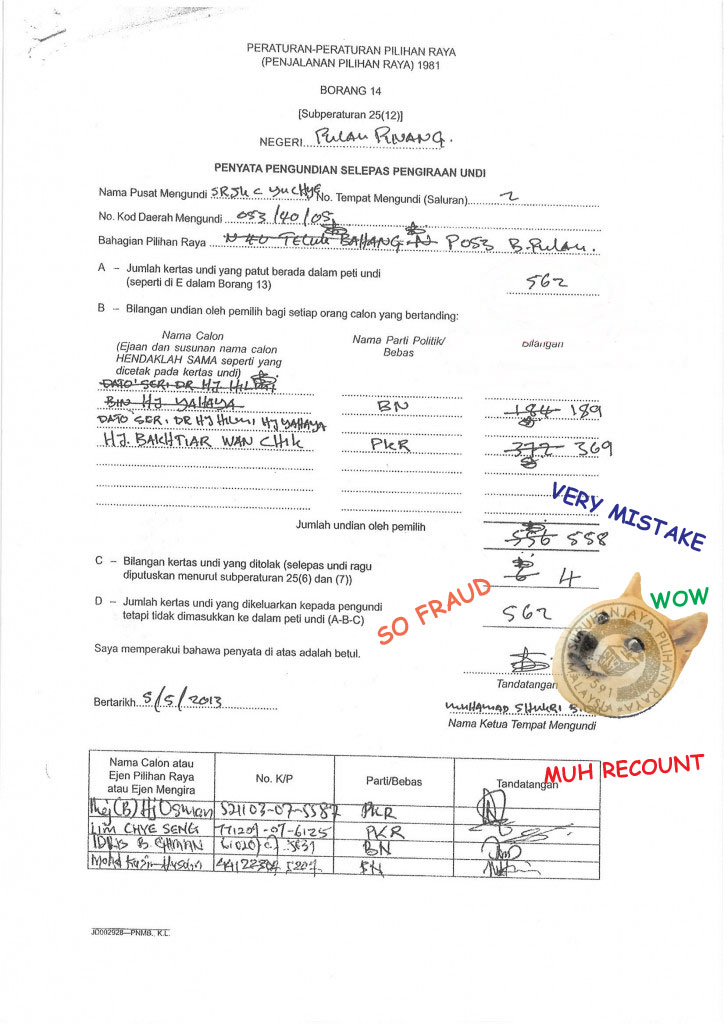
For those not familiar, Form 14 is the most important document in the entire election. It’s a record of HOW many ballot papers went to each party, and is supposed to be signed by the head of each polling station, with copies given to the Counting Agents of both sides. From there, the vote count on all the Form 14s from all the streams in the voting stations get tallied up, then if you campur all the votes from all the voting stations… tada! You’ll have the vote count for the entire constituency.
Of course, things aren’t this straight forward in real life, and on the day of the election, several problems occurred involving the Form 14. For one, there were allegations of EC officers refusing to sign the Form 14, and cases of voters taking matters into their own hands by locking up officers until they signed the form. But GE14 wasn’t the first time either. In the 2011 Sarawak state elections, EC officials were accused of not issuing copies of the form to Counting Agents and again in 2013, during GE13.
After all, why cheat by bringing in a bunch of voters from Bangladesh if all you need is one piece of paper to determine what the vote count was and for which party… which is also why Counting Agents are needed to monitor the process till the very last step including by signing the form.
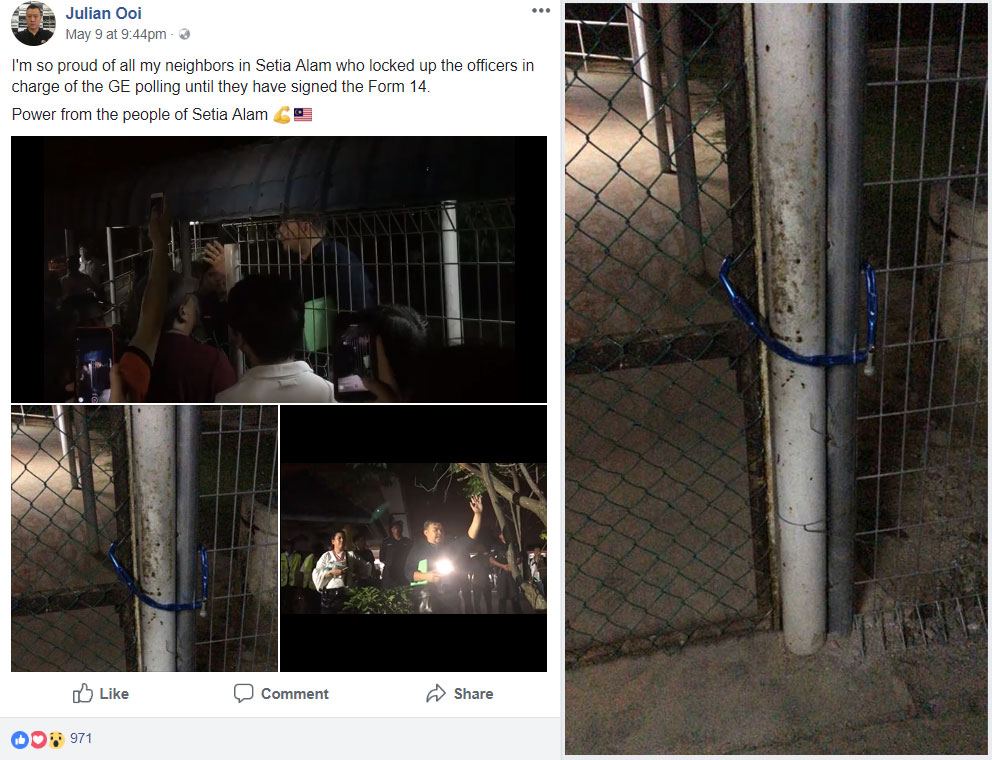
SOLUTION: So, since the Form 14 is the definitive part of the whole electoral process, it figures that we should make the procedures around the completion of the form airtight. According to Engage chairman Thomas, there were instances of returning officers informing EC officers not to sign off on the Form 14s or not to provide the Counting Agents a copy, which is in direct contravention of the election guidelines.
“If everyone follows the regulations, the entire process should be fairly transparent, no matter the procedure.” – Thomas Fann, in an interview with Cilisos.
Currently, any election officer found guilty of being in breach of their duties can be imprisoned for a maximum term of two years and/or fined a maximum sum of RM5000. While Thomas suggested increasing the sentence to deter electoral fraud, he also pointed out that many of the EC officers were simply inadequately trained or inexperienced. As such, he suggested increasing training sessions for EC officers, allowing the media to attend these sessions, and making the training material publicly available to make the procedures around the Form 14 transparent.
2) Those long queues that people died in
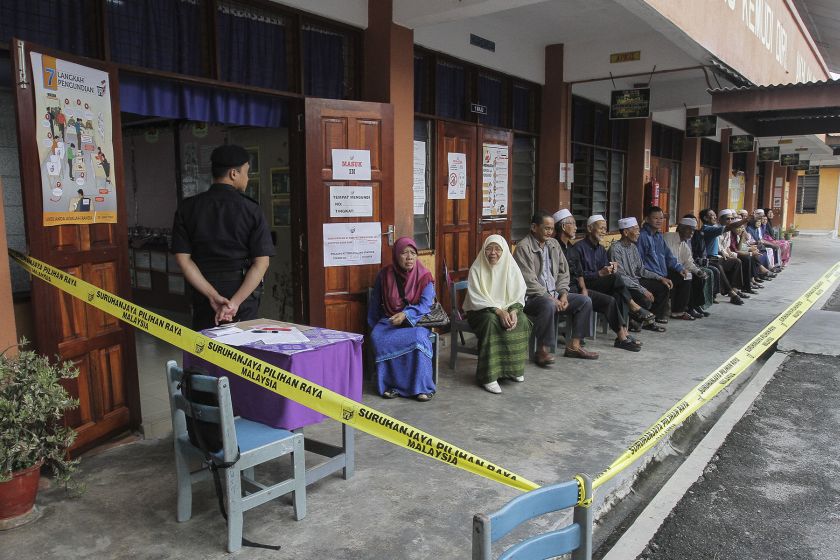
In each polling station, voters are divided by their age into different channels (or saluran) where they line up to vote. Each saluran is then capped at a maximum of 700 voters, with some channels having more voters than others depending on the population of the different age groups in the district.
As seen on voting day itself, there were plenty of issues with long queues and waiting times for people lining up to vote. At some stations, the wait was as long as SIX HOURS, and there were even two cases of people actually DYING while waiting in line! When the day drew to a close and voting was meant to stop at 5PM, there were stations that had up to a hundred voters still waiting only to be turned away by the Election Commission.
In response, BERSIH issued a statement telling voters to remain in their queue and demand the EC officers to let them vote. It also urged voters whose stations still had long waiting lines to take pictures of their queues and to record the names of the EC officers in charge in case legal action should be filed later.
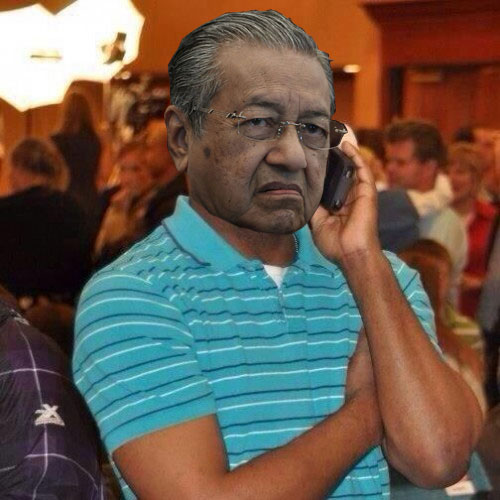
SOLUTION: Speaking to Thomas, we identified two quick fixes to the issues raised. The first would be to reduce the max cap of voters in each saluran to 500 and increase the number of saluran in each voting station. The second is making voters dip their finger AFTER they’ve voted, before they leave the room. Currently, having voters ink their finger before marking their ballot forces them to be careful with the ink so that they don’t accidentally spoil their vote.
By making these fixes, the queues should be shortened and the process quickened, so that everyone’s voting experience doesn’t have to be as painful as it was this time round.
3) Dun let people simply bantah a vote #bantaibantah
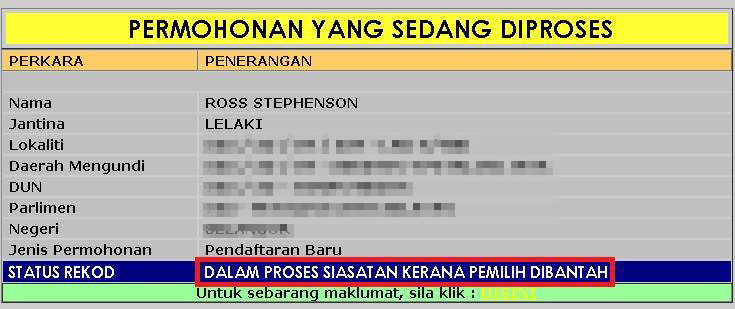
In case this is the first time you’re hearing about it, a couple years back, there was a surge in voter registrations as rumours of GE getting close started popping up. Once registered, voters would be able to check their status on the EC website to find out their constituency, their voting station, and other details confirming their registration.
Unfortunately, some people checking their voter status were greeted with the unpleasant surprise of finding out that their registration had been bantah-ed. In fact, these bantahans seemed to be happening on a large enough scale that BERSIH had to release a statement informing voters what to do if they find out their registration had been put on hold. The sketchy part was that THOUSANDS of voters had been affected by the bantahans and almost ALL of them were Chinese.
According to BERSIH, the incident showed that the bantahan process had been abused by certain parties in order to prevent people in certain marginal seats from being able to vote.
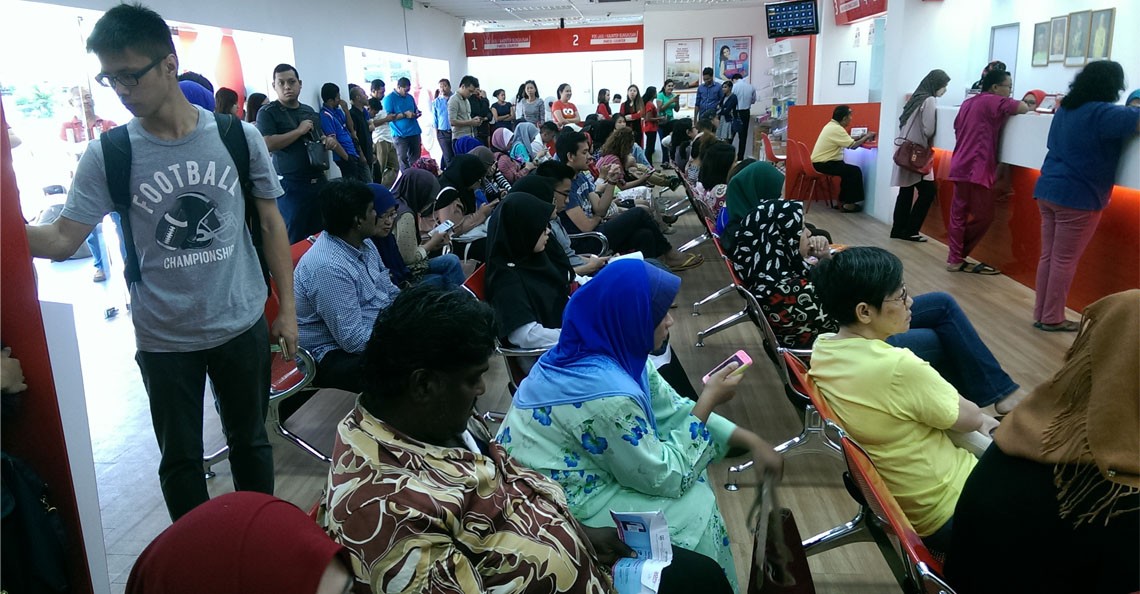
SOLUTION: Automatic voter registration (AVR). Currently, all Malaysian citizens over the age of 21 who want to vote are only able to do so if they register themselves at a post office, SPR office, or Malaysian embassy if they live overseas. By implementing AVR, any Malaysian who reaches the age of 21 will automatically be added to the electoral roll without having to register themselves in person.
According to Thomas, voter details on the electoral roll are linked to their details on JPJ’s national registry database ANYWAY. So, AVR would save everyone the trouble of having to register themselves and ALSO prevent voters from getting bantah-ed for no reason (Because, the only way to bantah someone’s vote is if you bantah their citizenship). Right now the only thing that’s been standing in its way is an amendment to the Constitution, but since Pakatan has promised this in their manifesto, it could be implemented by the time the next GE rolls around.
4) Release results faster a bit can ar?

After voting closes at 5PM, SPR officials and Counting Agents are supposed to begin counting the ballots in the same room where the voting was held. After they’ve counted all the ballots and signed the Form 14s, they’re supposed to transport the forms to the tallying centres, where the EC announces the results of each polling station. A day before the elections, EC chairman Tan Sri Hashim Abdullah said that the EC expected this whole process to take a few hours and that the overall results should be announced by 10PM that same night.
As all of us who stayed up the whole night of May 9th until the early morning of May 10 can attest, the results were definitely still not out by 10PM. The problem we’re talking about here isn’t just speed, because until results are made official, there is no government. And according to Tun M, no government means no law which means, “you don’t have all institutions which are created to give form to the government of this country“.
Speaking to reporters, Mahathir accused the EC of deliberately trying to delay the announcement of the results, supposedly once they realised that Pakatan Harapan had already won the 112 seats needed for a simple majority. Of course, this accusation was denied by the EC chairman.

SOLUTION: A deadline.
“There should be a deadline or mandatory time for results to be announced. Very few results are close, so most of them are actually straightforward. To trigger a recount, you must be within the 4% margin. So when the result is finalised, the Returning Officer (the fler supervising the conduct of the elections) must be made to announce it within an hour.” – Thomas Fann.
At the moment, there doesn’t seem to be any deadline for the election results to be finalised and announced. As such, setting one might just do the trick with solving the issue of delayed election results and high blood pressure from all the suspense of waiting.
5) The weird, weird boundaries of our electoral seats
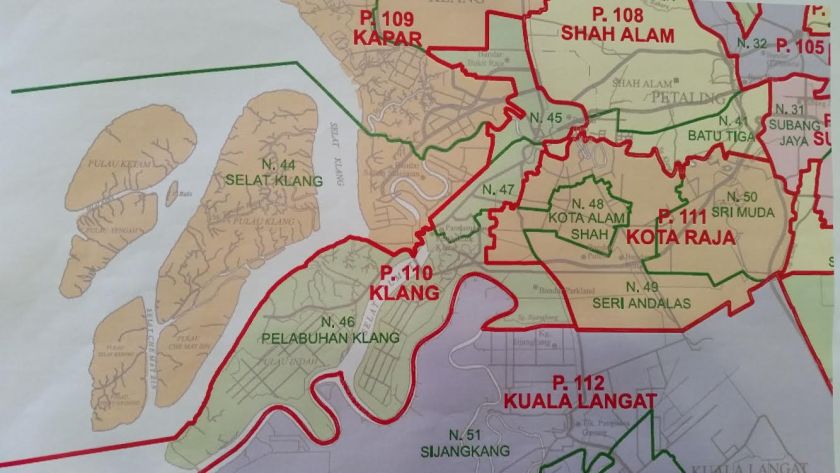
This one actually has a history we’ve written about in 2016, in 2017, and again a couple months ago in 2018. For those of you who have no idea what this is about, former PM Najib Razak tabled the EC’s report on redelineation in parliament in March where it was quickly passed and gazetted. This redelineation exercise is basically the redrawing of the boundaries of voting constituencies to take into account population growth and movement, meant to be carried out every eight years.
The problem with the redelineation report was how it packed voters that confirm wouldn’t vote BN into one larger seat, and divided up other voters based on racial and party lines into multiple, smaller seats. For example, newly elected Damansara MP Tony Pua saw his constituency go from having 84,456 voters in Petaling Jaya Utara to 150,439 in Damansara and later set the record for the largest majority in history with 106,903 votes.
To demonstrate how weird this voter distribution is, if you took approximately 106,000 of these extra voters who gave Tony their vote in this election and spread them across the three smallest constituencies in Selangor (Sabak Bernam, Sungai Besar, and, Tanjong Kerang), Pakatan would have won an extra two seats in Parliament by a VERY comfortable majority.
SOLUTION: The fix here is actually not as straightforward as our solutions to the previous four issues. When we asked Thomas what would be the best way to resolve the issues of redelineation and blatant gerrymandering that occurred this GE so they don’t happen again, he suggested getting to the very root of the problem.
“The EC sits under the Prime Minister’s Office. And although it says that the Chairman (of the EC) is appointed by the Agong, it is only done so on recommendation from thePM.” – Thomas Fann.
He welcomed Pakatan’s promise to remove the EC from under the Prime Minister’s Office and to place it fully under the purview of parliament. Further, he proposed a constitutional amendment placing a limit on the size of each constituency so that they are not more or less than 15% of the state average. Of course, this solution and the earlier suggestion for Automatic Voter Registration would need a two-thirds majority in Parliament to pass, which means…
Despite the post-GE14 euphoria, there’s still a lot of work to do
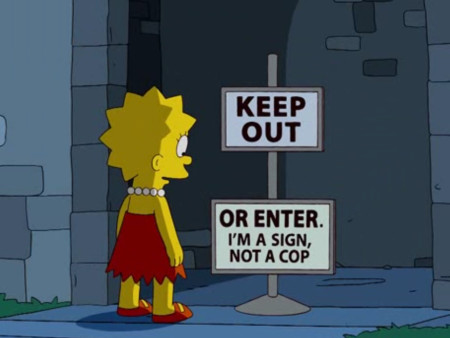
From the amount of international news calling our elections rigged and unfair, the recent change in government should be an opportunity for these reforms to take place and hopefully fix the problems we saw this time round.
Of course, with solutions like automatic voter registration and constituency limits needing a two-thirds majority to be implemented via constitutional amendment, cooperation with Barisan MPs will still be needed. As such, Pakatan will likely have to do a lot of negotiating to get the amendments passed in time for GE15 and Barisan MPs will still have a role to play in making these reforms happen.
- 747Shares
- Facebook678
- Twitter7
- LinkedIn10
- Email12
- WhatsApp39

